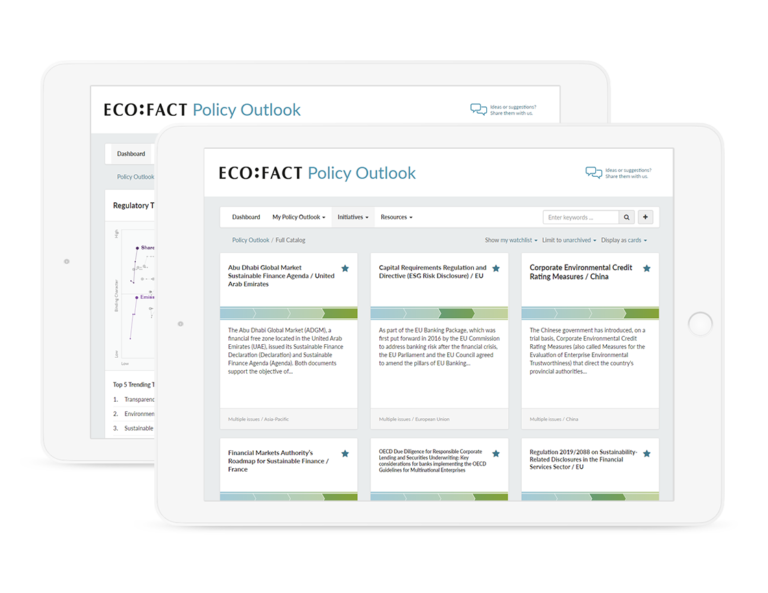Enforcement Mechanisms for Due Diligence Obligations
Awareness of environmental, social, and governance (ESG) harms associated with supply chains has prompted NGOs, industry associations, and governments to address these concerns. Efforts to introduce due diligence expectations have intensified since 2011, and the results have generally taken the form of soft law. To strengthen these non-binding regulations, states have started to legislate binding obligations. The requirements, which generally affect large companies, can also apply to financial institutions, if the applicability conditions are met.
The current regulatory trend is for companies to be presented with due diligence obligations. These obligations can take several forms:
1. Requiring companies to publish information on specific ESG measures.
The most common requirement is the publication of an annual slavery and human trafficking transparency statement, and the enforcement mechanisms take several forms, such as:
- Injunction for failing to comply
- A “name-and-shame” approach to compliance
- A government official could require an entity to comply with the provisions
- Fines
2. Mandating that companies implement internal due diligence processes and publish information about these processes.
The due diligence processes must include reasonable and appropriate measures to identify and prevent risks of human rights violations and environmental damage. The enforcement mechanisms take several forms, such as:
- Formal notice to comply
- Fines
- Civil liability
- Imprisonment of the responsible director
- Exclusion from public tenders
3. Ordering companies to implement internal due diligence processes that target risky countries or products, and these expectations are then enforced by customs control.
If there is a suspicion that merchandise produced by forced labor is being, or is likely to be, imported, companies must contact the customs authorities, who will investigate. To ensure a product can be imported, companies should carry out due diligence to assess the risks in their supply chains. Such obligations are currently only implemented in the USA, but the EU is discussing introducing similar ones.
The enforcement mechanism is very strong:
- Non-compliance could result in import holds, potentially causing financial losses, operational setbacks, and brand damage.
 All posts
All posts Contact
Contact



